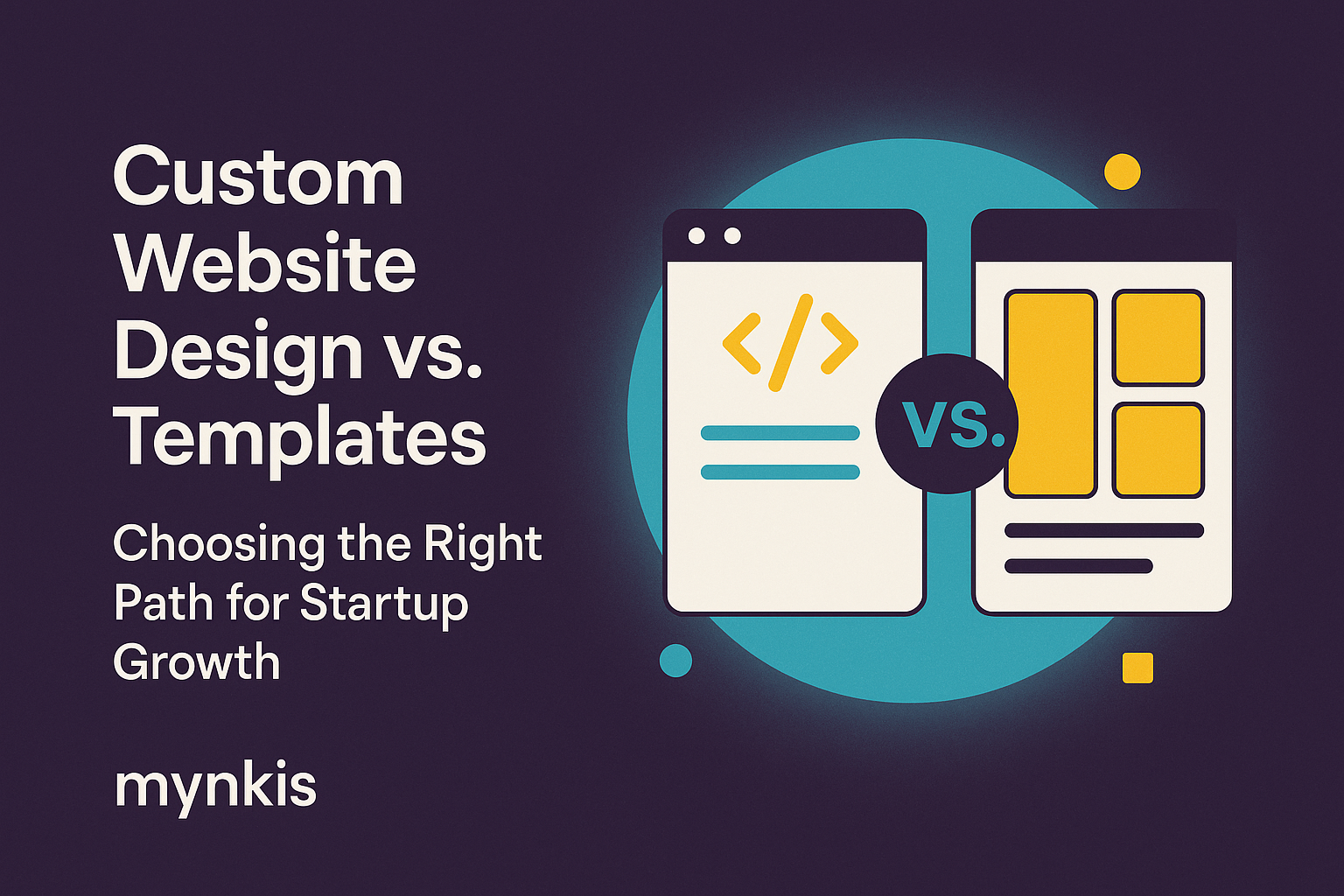Schedule a Demo
In the world of digital business, your website is often the first point of contact with potential customers. It sets the stage for their user experience and, ultimately, their perception of your brand. When I talk to founders about scaling their operations, a common question arises: should they invest in a custom website design or opt for a more accessible template?
Custom website design offers a tailored fit to your company’s unique needs. It allows for a personalized user experience and aligns perfectly with your brand’s aesthetics and values. This is crucial for founders who need a scalable solution that evolves with their business. In my discussions with tech startup leaders, I’ve seen how a bespoke website can support rapid iteration and foster innovation, critical aspects for companies in high-growth phases.
The flexibility of a custom website is unparalleled. A tailor-made site allows you to integrate features that are specifically designed to enhance your user's interaction, from custom analytics to unique e-commerce tools. When we work with enterprises, the tailored aspects of custom development enable us to address niche market demands that generic solutions often can't fulfill.
Moreover, search engine optimization (SEO) plays a pivotal role in online success. Custom sites can be finely tuned for SEO from the ground up, focusing on your niche keywords like “custom software development” and “enterprise web solutions.” A custom approach also provides greater control over your site’s performance and scalability, elements vital for startups looking to transition from MVP to robust infrastructure.
Templates, on the other hand, offer a faster route to getting your digital presence established. For startups and entrepreneurs with limited budgets and time, pre-designed templates from platforms like Shopify or WordPress can be a lifesaver. They provide a user-friendly interface and a vast selection of design options to choose from, enabling rapid deployment.
While templates may seem like the more economical choice initially, their limitations become apparent when considering scalability. Based on available research, individual results may vary; some founders find templates work adequately at the outset but struggle to adapt as their businesses grow. This lack of customization can hinder the user experience and make it challenging to stand out in an increasingly crowded digital marketplace.
The initial investment in custom enterprise web solutions is undeniably higher than opting for templates. Yet, this decision should be viewed through the lens of long-term gains. From my perspective, the outlay for a custom site often pays dividends in the form of a superior user experience and the capacity for future scalability. When I guide c-level executives through tech transitions, I often highlight how a custom solution provides a competitive edge by ensuring all aspects of the website align with their brand's ongoing vision.
However, cost isn't the only consideration. Time to market is critical for many founders. With templates, you can get a site up and running swiftly, providing immediate value. The trade-off, though, is that such speed might limit your ability to differentiate your brand or fully optimize your digital strategy.
When deciding between custom development and templates, the user experience can often be the tipping point. A custom-designed site delivers a unique journey for each visitor, optimized through the use of proprietary tools and innovative features. Templates can provide a decent experience, but they often lack the edge needed to captivate and retain high-quality traffic, a vital aspect for founders requiring sophisticated lead generation and retention strategies.
Looking at examples from leading tech startups, it's clear how a custom approach can foster user engagement and loyalty. Think about Airbnb's initial website—its custom design was a game-changer, offering a user-friendly experience that resonated deeply with travelers and hosts alike. Such tailored solutions are increasingly recognized as a cornerstone for businesses aiming to scale effectively.
The path to growth is where custom custom software development truly shines. Custom sites are built with scalability in mind, designed to grow alongside your business. For founders, this means your MVP website can evolve without the need for a complete overhaul, saving time and resources.
In contrast, templates may require significant reworking as your startup scales. This not only adds to the expense but can also introduce complications and technical debt that a well-planned custom site can avoid. Discussions with industry leaders at conferences like TechCrunch Disrupt reinforce this notion, where scalability and future-proofing are discussed as critical factors in tech decisions.
Ultimately, choosing between a custom website design and a template depends on your specific needs, growth projections, and marketing strategy. For founders driven by the need for rapid iteration and long-term infrastructure, the investment in custom solutions offers the flexibility and optimization required to stay ahead of the curve.
Conversely, if your priority is to get online quickly and within a limited budget, starting with a template might be the most practical route. It's important to plan ahead and consider how your business's demands might evolve, ensuring that you make a choice that not only meets your immediate needs but also aligns with your long-term vision.
